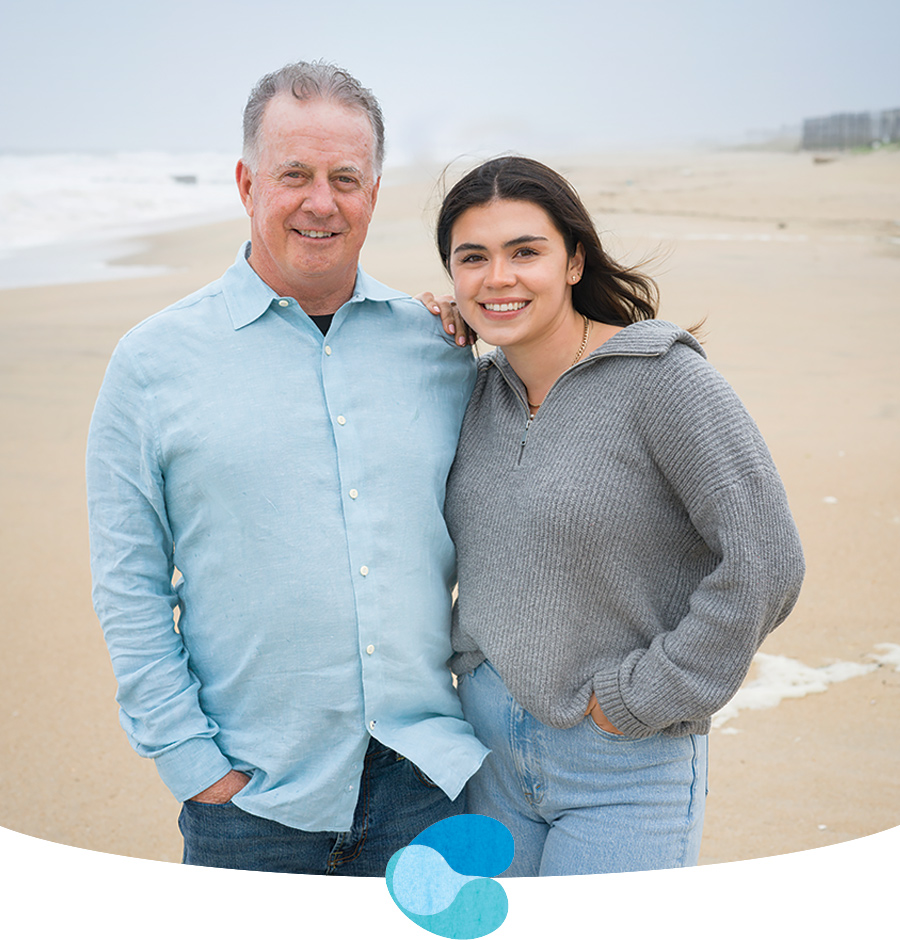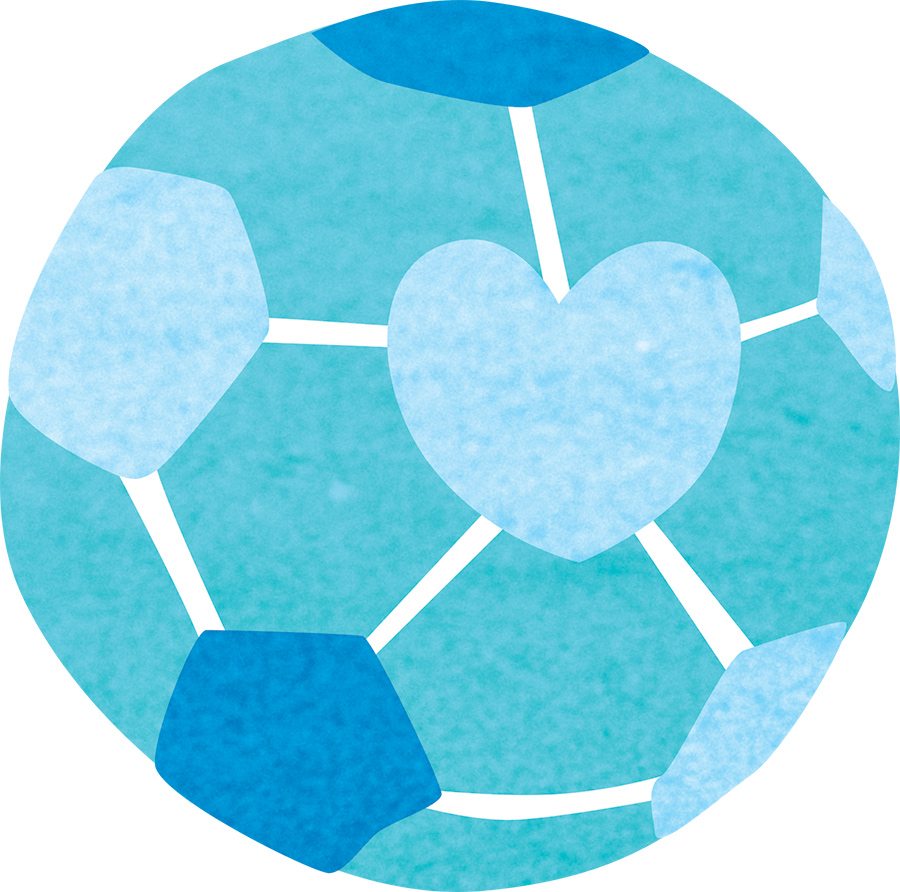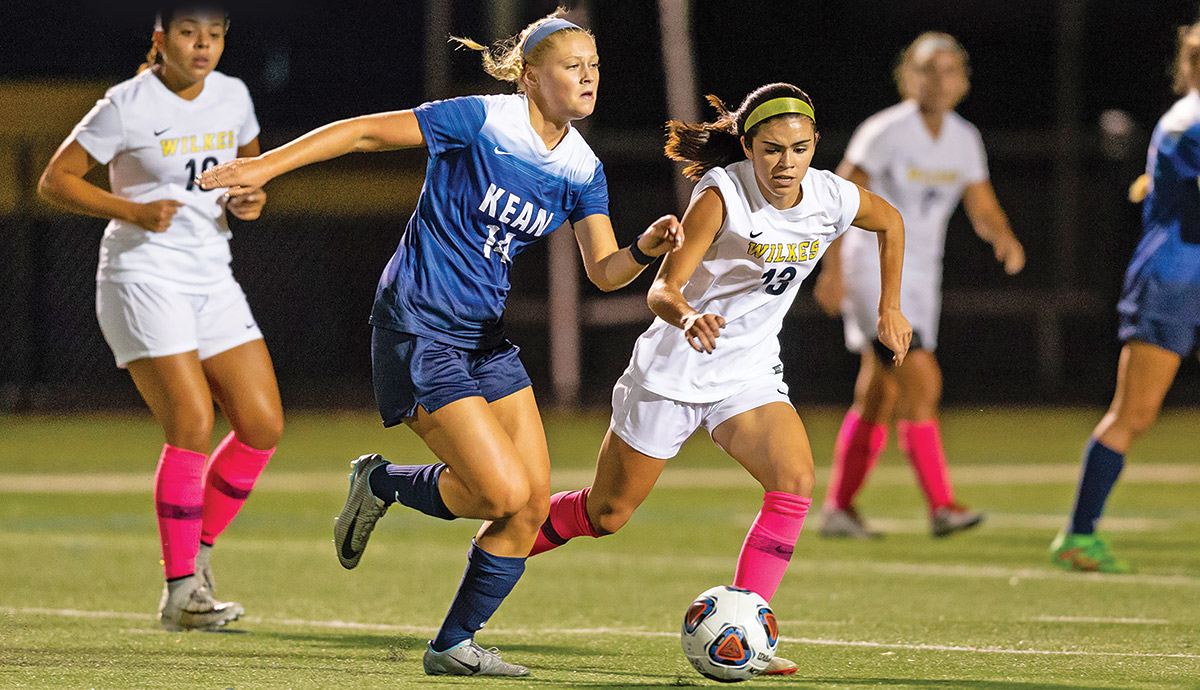
photo by John Emerson
Life Saver
Niamh Harkins lives in Endicott, N.Y., and is an account coordinator for Scimentum, part of Nucleus Global’s network of medical communications agencies. She says choosing to be a donor was easy. “We don’t know what’s going to happen tomorrow or next week. So why not make the best decision for the ones I love and myself?” she says. “And that was definitely donating to my Dad.”

“I’ve never heard my Dad be scared in his entire life,” Niamh Harkins recalls. “Hearing that fear in his voice and realizing this is serious, people aren’t invincible—that the people you love can be gone soon. I think that made me realize that if I can give somebody—especially somebody like my Dad—more time, that’s what I want to do.”
Her decision to be a donor didn’t surprise those who know her best. Greg Harkins remembers his daughter never wavered. “I never saw any hesitation in her. It was amazing,” he says. “She was fearless.”
Soccer played a big part in forming the father-daughter bond. Harkins spent hours in the car with her Dad as he chauffeured her to high school and club games. Recruited to play soccer at Wilkes, she was also in the Honors Program, majoring in management and marketing. Her father came to most of her college games, driving four hours roundtrip from his home in Hopewell Township, N.J.
Once she volunteered to be a donor, Niamh Harkins went through an extensive screening process to qualify. It included medical tests, psychological evaluations, counseling and education about the living donor experience. Harkins and two of her three sisters were all evaluated but only she was approved. Donors are assigned a living donor advocate who helps to ensure that their rights are met. She especially remembers the advice shared by another living donor from the National Kidney Donor Organization, who spoke with her early in the process. “Something that he said to me stuck with me throughout my testing and the surgery itself,” Niamh Harkins recalls. “He said, ‘Three weeks of being laid up is nothing compared to giving someone another 20 years of a comfortable life.’”
Father and daughter checked into the hospital early on the morning of April 27. The three-hour surgery to remove Harkins’ healthy kidney was done first. Her father’s surgery to receive it immediately followed. Father and daughter recuperated in neighboring rooms for the next three days. “We walked around the floor with our drips,” Greg Harkins recalls. Then father and daughter returned home to convalesce for three weeks before Niamh headed back to Wilkes in time for graduation on May 21, 2022. In July she moved to New York state where she now lives with her boyfriend, Mark Mullins ’20. Donating a kidney didn’t end her athletic career: In her spare time, she plays soccer in co-ed adult leagues.
Greg Harkins gets emotional talking about the gift he received from his daughter. “It’s kind of changed my perspective on life and about myself,” he says. “I need to make sure I take care of myself and make sure I honor her selfless act.”
His daughter doesn’t worry about possible future health problems related to her donation. In the unlikely event that she would need a kidney, protocol would place her at the top of the list to receive one because she’s a donor. She jokes about the fact that she chose number 13 for her number on the women’s soccer team. “I don’t believe in unlucky,” Harkins says, adding that she’d donate her kidney again if she had the chance. “It was one of the easiest decisions I’ve ever made. If my Dad can now have 20 years with this kidney and live comfortably and enjoy his life, then that’s an easy, easy answer for me.”
